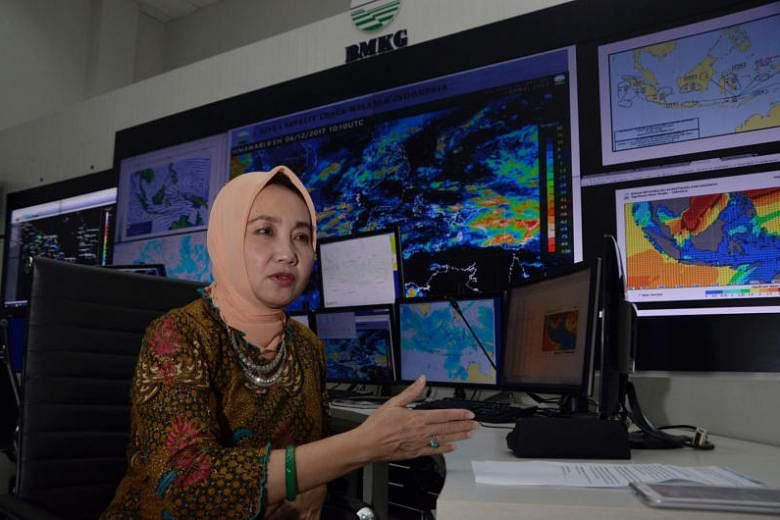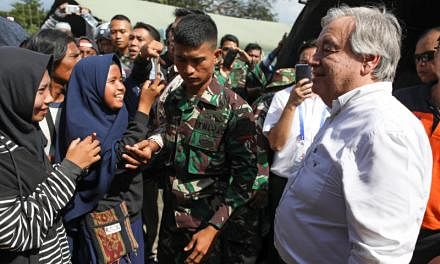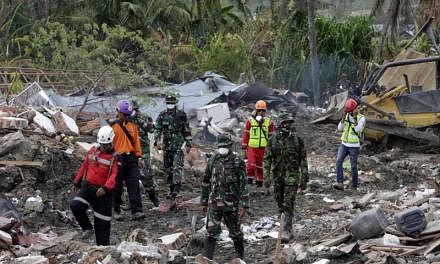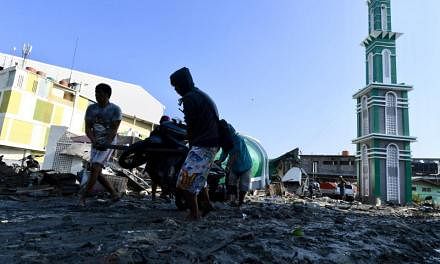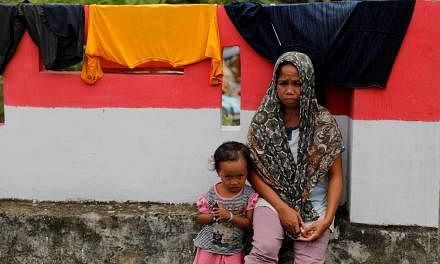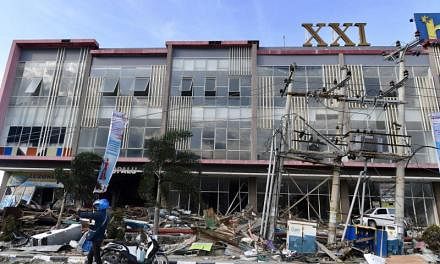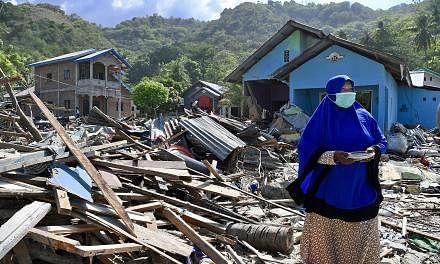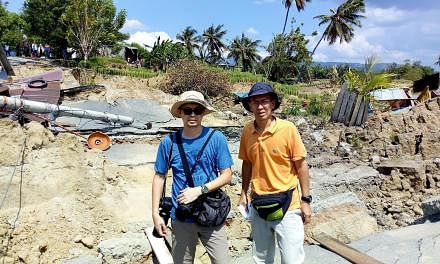JAKARTA - The head of Indonesia's Meteorology, Climatology and Geophysics Agency (BMKG) - which has been accused of prematurely ending the tsunami warning during the deadly disaster in Central Sulawesi - has been asked to resign.
It was alleged that another wave hit after the warning was lifted.
Members of a House commission who met officials from the agency on Wednesday (Oct 3) blamed chief Dwikorita Karnawati for the death toll from last Friday's 7.4-magnitude earthquake and subsequent tsunami, which has now hit 1,424.
The BMKG's negligence was a fatal mistake, said commission member Anthon Sihombing.
He said Dr Dwikorita, 54, who has led the agency since November 2017, was no longer fit to lead it, adding: "I firmly request she step down."
Her statements, he added, had been "very confusing, or very different from reality".
"In fact, as a leader, she should be able to report the conditions as clearly as possible," said Mr Anthon, part of a House commission looking into areas such as meteorology and the development of disadvantaged regions.
"The government in this case needs to pick someone who is competent, both in their work and in providing explanations to the public," he added.
Dr Dwikorita, who has repeatedly defended her agency's decision to lift the tsunami warning about half an hour after it was given, has refused to leave her post.
"If I resign, it means I'm a coward. It means I don't dare to face an unfinished problem," she said, as she apologised on behalf of her agency.
She reiterated that the BMKG did not end the tsunami warning prematurely, adding that the impression that another wave had hit after the all-clear was given was because a video of the tsunami was uploaded after the warning was lifted.
Dr Dwikorita told local media on Sunday that three waves hit the beach of the provincial capital of Palu around dusk last Friday. Only after the third wave - the highest one - hit was the tsunami alert ended minutes later at 6.37pm.
There were no more waves after the alert ended, she stressed.
At Wednesday's meeting, commission members continued to press her for an explanation, with commission member Lasarus, who goes by one name, telling her: "People have died. This is serious."
The death toll is expected to rise, as rescuers continue to sift through the ruins. About 150 people are estimated to still be trapped under mud and rubble.
The recent disaster has put disaster funding in the spotlight, as details emerged about agencies' struggles to maintain tsunami buoys and earthquake sensors.
None of Indonesia's tsunami buoys has been operating since 2012, the spokesman for Indonesia's disaster mitigation agency (BNBP), Dr Sutopo Purwo Nugroho, revealed on Sunday, citing a decline in funding.
Mr Rahmat Triyono, head of the earthquakes and tsunami centre at BMKG, told the BBC on Monday there was a maintenance budget for only 70 of its 170 earthquake sensors.
The commission on Wednesday recommended raising BMKG's budget, with commission head Fary Djemi Francis saying the agency's budget was decreasing every year.
"We will get back to the government about the budget, to increase it especially for early detection equipment," he said, adding that a 1.7 trillion rupiah (S$155 million) budget was discussed at the meeting.
